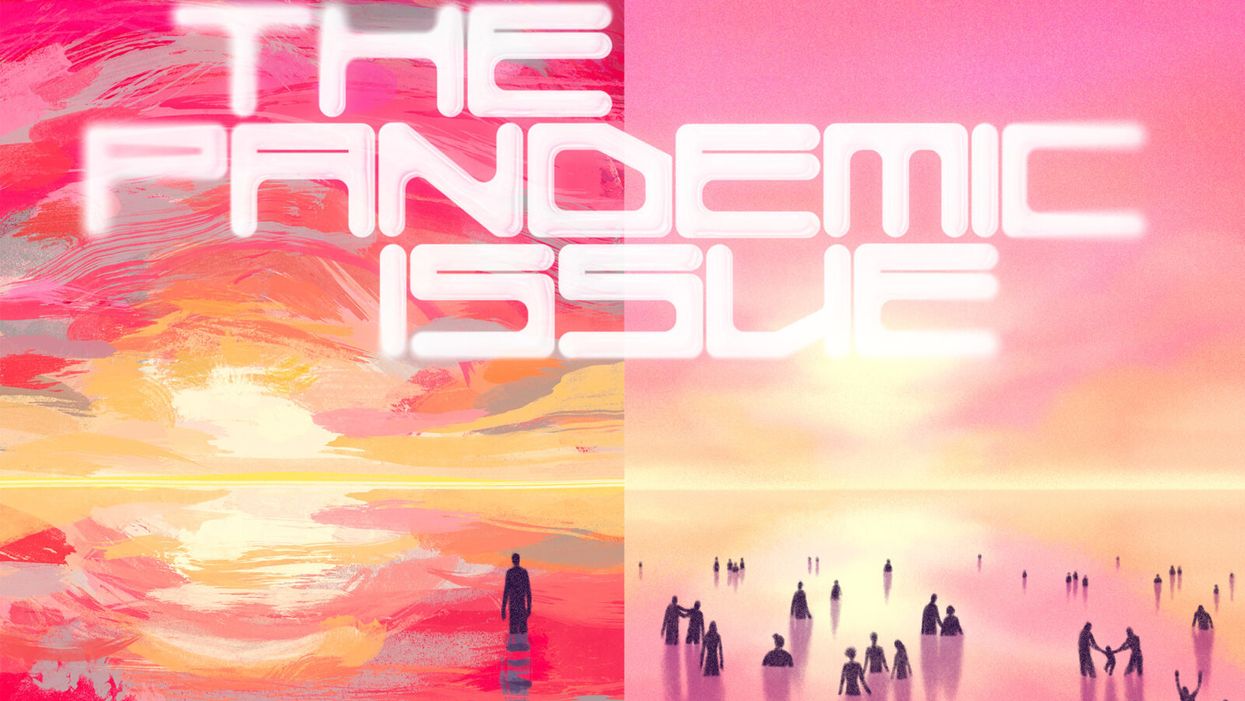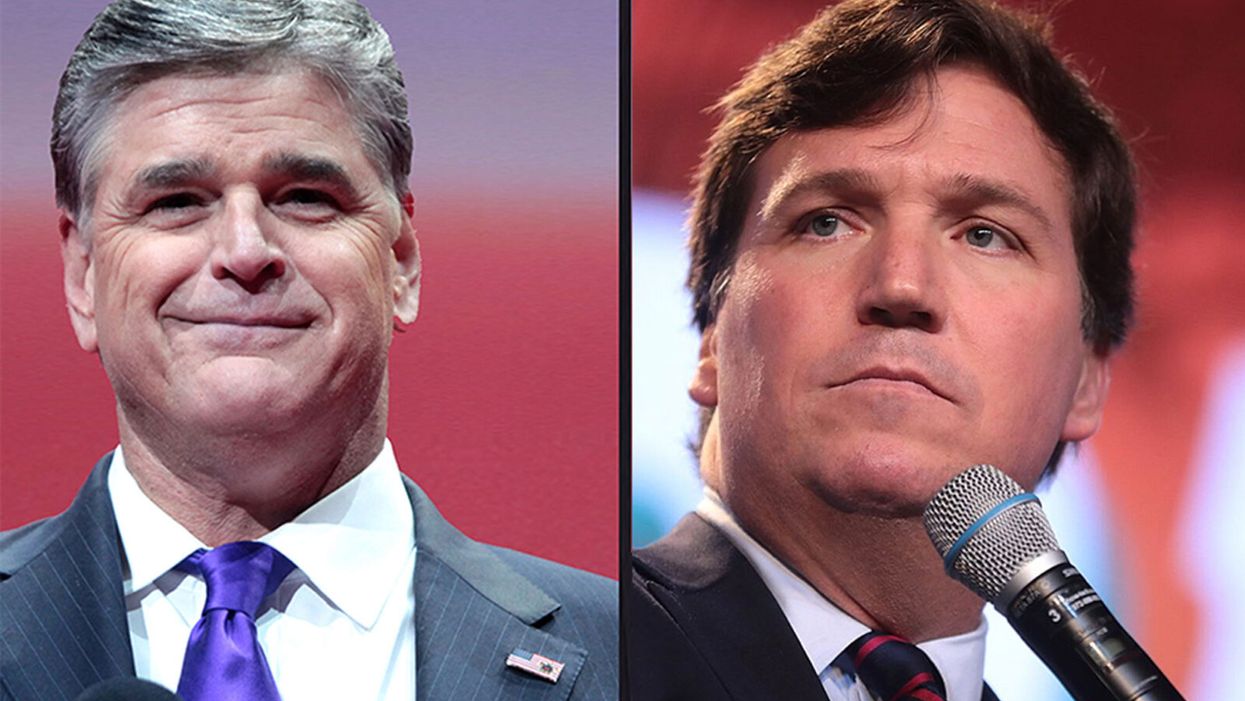After his grandmother’s dementia diagnosis, one man invented a snack to keep her healthy and hydrated.

Founder Lewis Hornby and his grandmother Pat, sampling Jelly Drops—an edible gummy containing water and life-saving electrolytes.
On a visit to his grandmother’s nursing home in 2016, college student Lewis Hornby made a shocking discovery: Dehydration is a common (and dangerous) problem among seniors—especially those that are diagnosed with dementia.
Hornby’s grandmother, Pat, had always had difficulty keeping up her water intake as she got older, a common issue with seniors. As we age, our body composition changes, and we naturally hold less water than younger adults or children, so it’s easier to become dehydrated quickly if those fluids aren’t replenished. What’s more, our thirst signals diminish naturally as we age as well—meaning our body is not as good as it once was in letting us know that we need to rehydrate. This often creates a perfect storm that commonly leads to dehydration. In Pat’s case, her dehydration was so severe she nearly died.
When Lewis Hornby visited his grandmother at her nursing home afterward, he learned that dehydration especially affects people with dementia, as they often don’t feel thirst cues at all, or may not recognize how to use cups correctly. But while dementia patients often don’t remember to drink water, it seemed to Hornby that they had less problem remembering to eat, particularly candy.

Hornby wanted to create a solution for elderly people who struggled keeping their fluid intake up. He spent the next eighteen months researching and designing a solution and securing funding for his project. In 2019, Hornby won a sizable grant from the Alzheimer’s Society, a UK-based care and research charity for people with dementia and their caregivers. Together, through the charity’s Accelerator Program, they created a bite-sized, sugar-free, edible jelly drop that looked and tasted like candy. The candy, called Jelly Drops, contained 95% water and electrolytes—important minerals that are often lost during dehydration. The final product launched in 2020—and was an immediate success. The drops were able to provide extra hydration to the elderly, as well as help keep dementia patients safe, since dehydration commonly leads to confusion, hospitalization, and sometimes even death.
Not only did Jelly Drops quickly become a favorite snack among dementia patients in the UK, but they were able to provide an additional boost of hydration to hospital workers during the pandemic. In NHS coronavirus hospital wards, patients infected with the virus were regularly given Jelly Drops to keep their fluid levels normal—and staff members snacked on them as well, since long shifts and personal protective equipment (PPE) they were required to wear often left them feeling parched.
In April 2022, Jelly Drops launched in the United States. The company continues to donate 1% of its profits to help fund Alzheimer’s research.
GOOD10: The Pandemic Issue explores big-picture ways that science innovation and communication can usher in a more equitable, more progress-oriented, and safer world.
This issue is a collaboration among GOOD, leapsmag, and the Aspen Institute Science & Society Program.
The GOOD10 format explores fundamental issues facing humanity through the lenses of ten forces pushing the needle toward progress: Places, Philanthropists, Celebrities, Whistleblowers, Companies, Media, Products, Politicians, Scientists, and Actions. Across these categories, we seek to present unexpected and encouraging paradigms emerging from this historic crisis.
This special issue is available as an e-reader version for both desktop and mobile. It is also available as a free downloadable PDF.
TABLE OF CONTENTS:
- PLACES:
55 Lessons Learned About Science Communication Around the World; Quarantining Our Way Into Outer Space - PLACES:
Quarantining Our Way Into Outer Space - PHILANTHROPISTS:
An Exclusive Interview with Wendy Schmidt about Science in the Pandemic Era - CELEBRITIES:
Neil deGrasse Tyson Wants Celebrities to Promote Scientists - WHISTLEBLOWERS:
The Science Sleuths Holding Fraudulent Research Accountable - COMPANIES:
The Biggest Challenge for a COVID-19 Vaccine: Making It Accessible and Affordable - MEDIA:
Isaac Asimov on the History of Infectious Disease—And How Humanity Learned To Fight Back - PRODUCTS:
Will COVID-19 Pave the Way For DIY Precision Medicine? - POLITICIANS:
Will the Pandemic Propel STEM Experts to Political Power? - SCIENTISTS:
Would a Broad-Spectrum Antiviral Drug Stop the Pandemic? - ACTIONS:
Pseudoscience is Rampant: How Not to Fall For It - ACTIONS:
How COVID-19 Could Usher In a New Age of Collective Drug Discovery
THE EVENT:
"The Pandemic Science Summit" focused on how science innovation is key to society's future stability as we emerge from the pandemic, featuring:
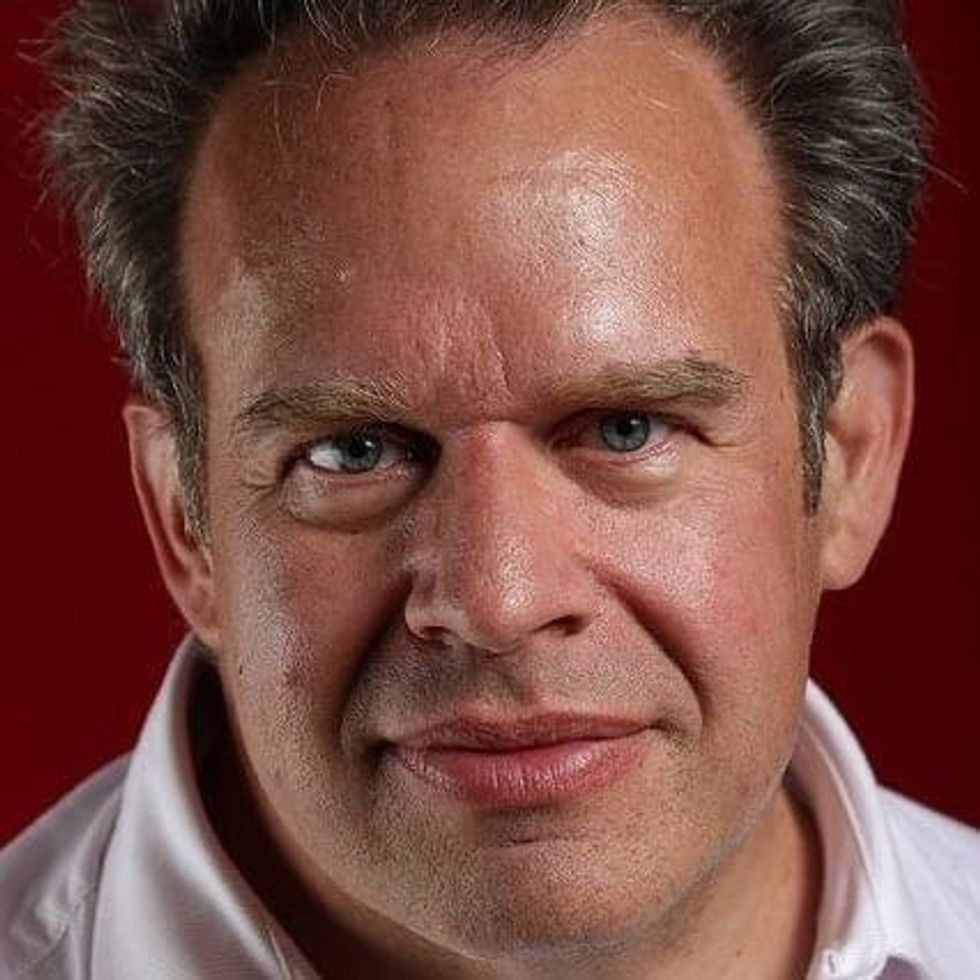
Christopher Bailey – Arts and Health Lead, World Health Organization

Elisabeth Bik, Ph.D. – Microbiologist and scientific integrity consultant
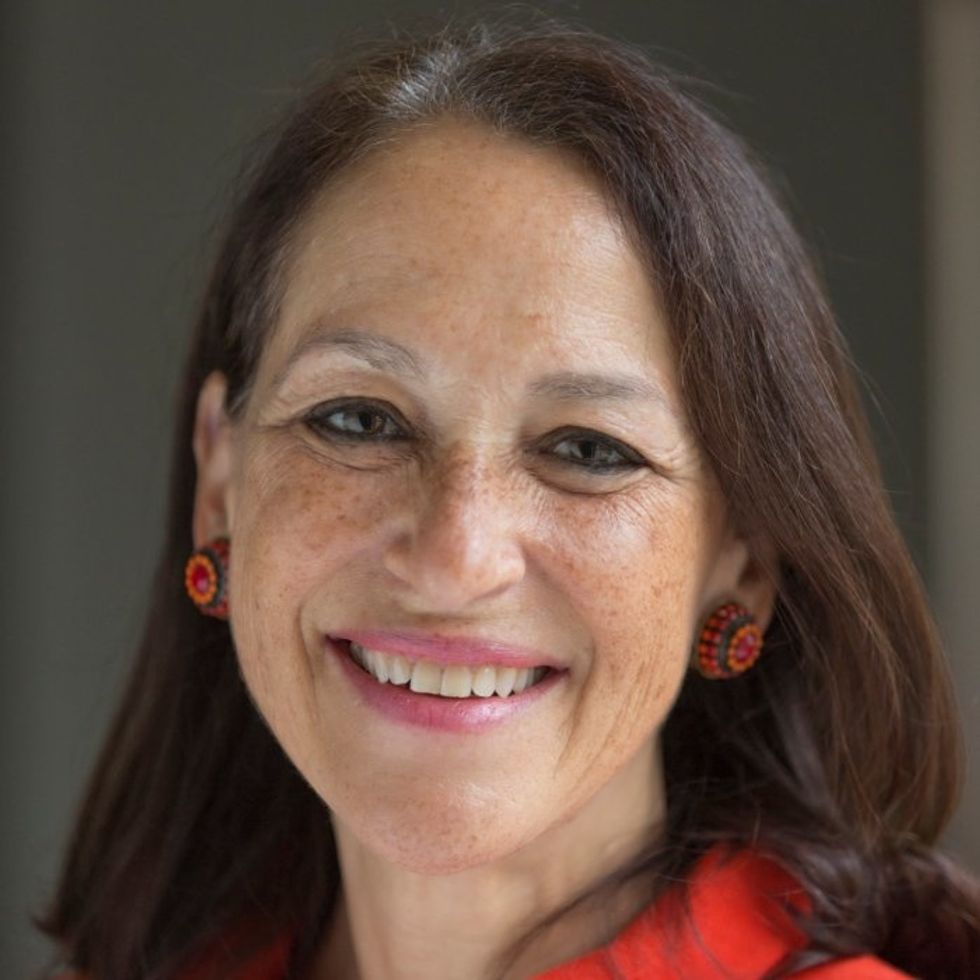
Margaret Hamburg, M.D. – Foreign Secretary, National Academy of Medicine; former Commissioner, U.S. Food and Drug Administration
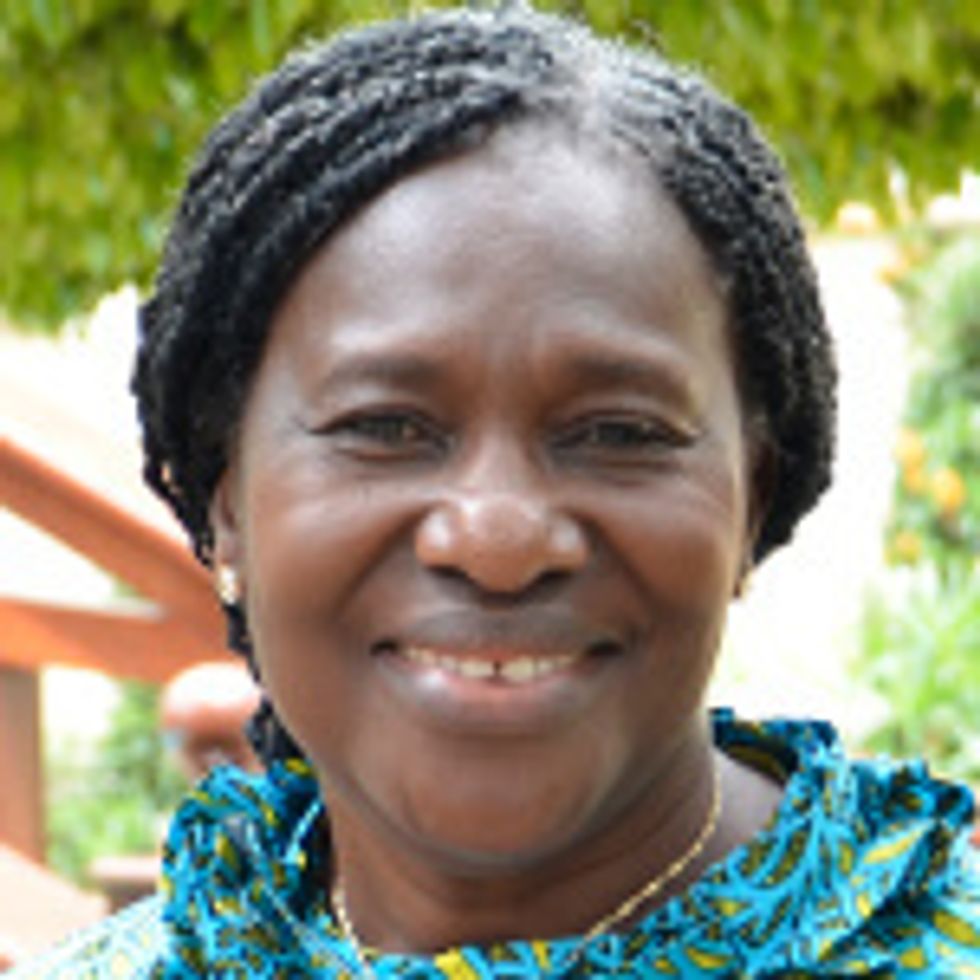
Peggy Oti-Boateng, Ph.D. – Director, Division of Science Policy and Capacity- Building, UNESCO
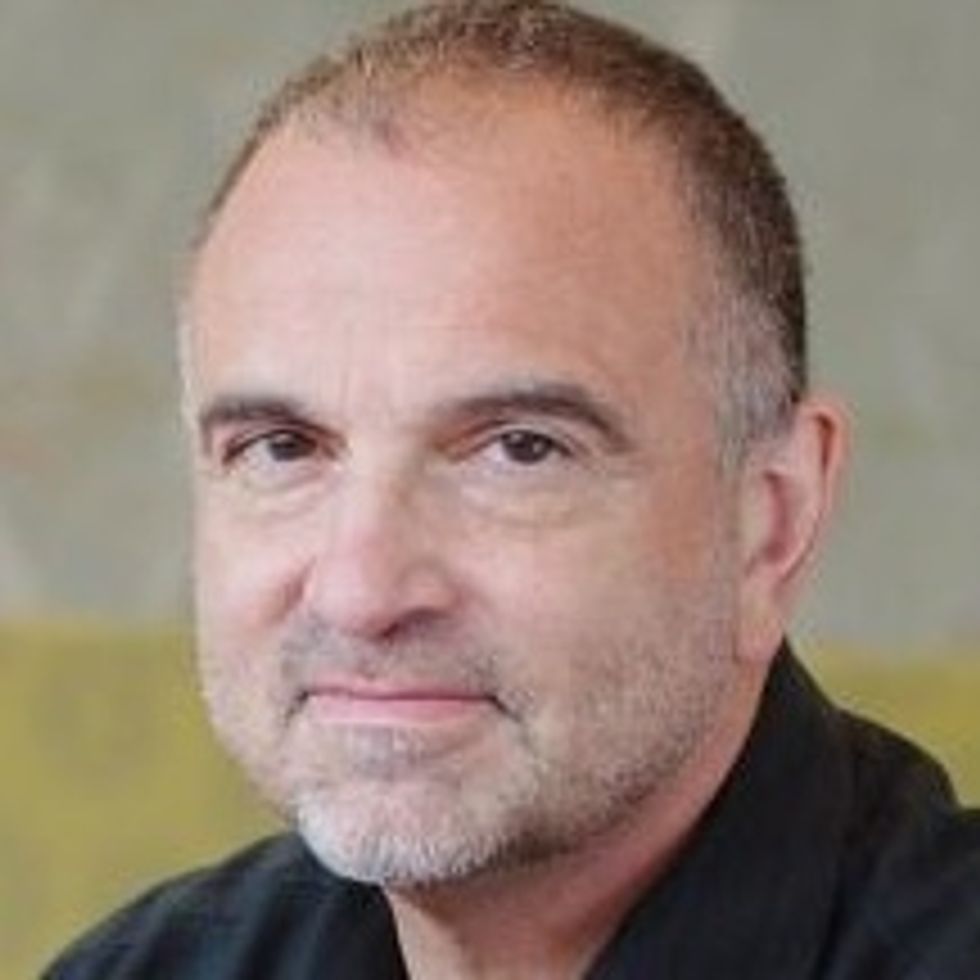
George Yancopoulos, M.D., Ph.D. – President and Chief Scientific Officer, Regeneron Pharmaceuticals
Kira Peikoff was the editor-in-chief of Leaps.org from 2017 to 2021. As a journalist, her work has appeared in The New York Times, Newsweek, Nautilus, Popular Mechanics, The New York Academy of Sciences, and other outlets. She is also the author of four suspense novels that explore controversial issues arising from scientific innovation: Living Proof, No Time to Die, Die Again Tomorrow, and Mother Knows Best. Peikoff holds a B.A. in Journalism from New York University and an M.S. in Bioethics from Columbia University. She lives in New Jersey with her husband and two young sons. Follow her on Twitter @KiraPeikoff.
Two Conservative Icons Gave Opposite Advice on COVID-19. Those Misinformed Died in Higher Numbers, New Study Reports.
Sean Hannity (left) and Tucker Carlson each told their audience opposite information about the threat of COVID-19, with serious consequences for those misinformed.
The news sources that you consume can kill you - or save you. That's the fundamental insight of a powerful new study about the impact of watching either Sean Hannity's news show Hannity or Tucker Carlson's Tucker Carlson Tonight. One saved lives and the other resulted in more deaths, due to how each host covered COVID-19.
Carlson took the threat of COVID-19 seriously early on, more so than most media figures on the right or left.
This research illustrates the danger of falling for health-related misinformation due to judgment errors known as cognitive biases. These dangerous mental blindspots stem from the fact that our gut reactions evolved for the ancient savanna environment, not the modern world; yet the vast majority of advice on decision making is to "go with your gut," despite the fact that doing so leads to so many disastrous outcomes. These mental blind spots impact all areas of our life, from health to politics and even shopping, as a survey by a comparison purchasing website reveals. We need to be wary of cognitive biases in order to survive and thrive during this pandemic.
Sean Hannity vs. Tucker Carlson Coverage of COVID-19
Hannity and Tucker Carlson Tonight are the top two U.S. cable news shows, both on Fox News. Hannity and Carlson share very similar ideological profiles and have similar viewership demographics: older adults who lean conservative.
One notable difference, however, relates to how both approached coverage of COVID-19, especially in February and early March 2020. Researchers at the Becker Friedman Institute for Economics at the University of Chicago decided to study the health consequences of this difference.
Carlson took the threat of COVID-19 seriously early on, more so than most media figures on the right or left. Already on January 28, way earlier than most, Carlson spent a significant part of his show highlighting the serious dangers of a global pandemic. He continued his warnings throughout February. On February 25, Carlson told his viewers: "In this country, more than a million would die."
By contrast, Hannity was one of the Fox News hosts who took a more extreme position in downplaying COVID-19, frequently comparing it to the flu. On February 27, he said "And today, thankfully, zero people in the United States of America have died from the coronavirus. Zero. Now, let's put this in perspective. In 2017, 61,000 people in this country died from influenza, the flu. Common flu." Moreover, Hannity explicitly politicized COVID-19, claiming that "[Democrats] are now using the natural fear of a virus as a political weapon. And we have all the evidence to prove it, a shameful politicizing, weaponizing of, yes, the coronavirus."
However, after President Donald Trump declared COVID-19 a national emergency in mid-March, Hannity -- and other Fox News hosts -- changed their tune to align more with Carlson's, acknowledging the serious dangers of the virus.
The Behavior and Health Consequences
The Becker Friedman Institute researchers investigated whether the difference in coverage impacted behaviors. They conducted a nationally representative survey of over 1,000 people who watch Fox News at least once a week, evaluating both viewership and behavior changes in response to the pandemic, such as social distancing and improving hygiene.
Next, the study compared people's behavior changes to viewing patterns. The researchers found that "viewers of Hannity changed their behavior five days later than viewers of other shows, while viewers of Tucker Carlson Tonight changed their behavior three days earlier than viewers of other shows." The statistical difference was more than enough to demonstrate significance; in other words, it was extremely unlikely to occur by chance -- so unlikely as to be negligible.
Did these behavior changes lead to grave consequences? Indeed.
The paper compared the popularity of each show in specific counties to data on COVID-19 infections and deaths. Controlling for a wide variety of potential confounding variables, the study found that areas of the country where Hannity is more popular had more cases and deaths two weeks later, the time that it would take for the virus to start manifesting itself. By March 21st, the researchers found, there were 11 percent more deaths among Hannity's viewership than among Carlson's, again with a high degree of statistical significance.
The study's authors concluded: "Our findings indicate that provision of misinformation in the early stages of a pandemic can have important consequences for health outcomes."
Such outcomes stem from excessive trust that our minds tend to give those we see as having authority, even if they don't possess expertise in the relevant subject era.
Cognitive Biases and COVID-19 Misinformation
It's critically important to recognize that the study's authors did not seek to score any ideological points, given the broadly similar ideological profiles of the two hosts. The researchers simply explored the impact of accurate and inaccurate information about COVID-19 on the viewership. Clearly, the false information had deadly consequences.
Such outcomes stem from excessive trust that our minds tend to give those we see as having authority, even if they don't possess expertise in the relevant subject era -- such as media figures that we follow. This excessive trust - and consequent obedience - is called the "authority bias."
A related mental pattern is called "emotional contagion," in which we are unwittingly infected with the emotions of those we see as leaders. Emotions can motivate action even in the absence of formal authority, and are particularly important for those with informal authority, including thought leaders like Carlson and Hannity.
Thus, Hannity telling his audience that Democrats used anxiety about the virus as a political weapon led his audience to reject fears of COVID-19, even though such a reaction and consequent behavioral changes were the right response. Carlson's emphasis on the deadly nature of this illness motivated his audience to take appropriate precautions.
Authority bias and emotional contagion facilitate the spread of misinformation and its dangers, at least when we don't take the steps necessary to figure out the facts. Such steps can range from following best fact-checking practices to getting your information from news sources that commit publicly to being held accountable for truthfulness. Remember, the more important and impactful such information may be for your life, the more important it is to take the time to evaluate it accurately to help you make the best decisions.
